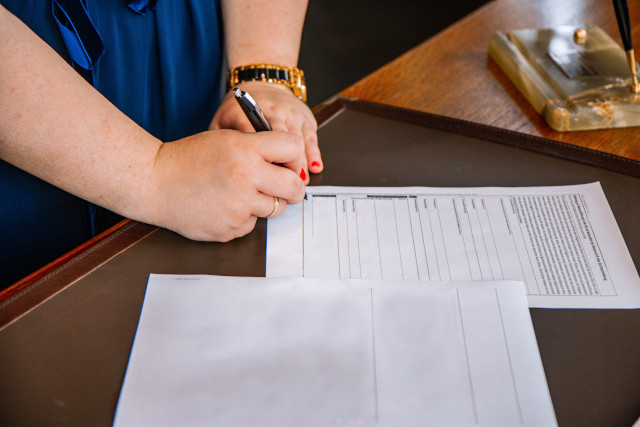7 Things You Need to Know About Creating a Power of Attorney (POA)
20 May 2021

1. What is a Power of Attorney?
An ordinary power of attorney allows one or more persons, known as your attorney, to make financial decisions on your behalf. It's only valid while you still have the mental capacity to make your own decisions. You may want to set one up if, for example:
- you need someone to act for you for a temporary period, such as when you are on holiday or in hospital,
- you are finding it harder to get out and about to the bank or post office, or you want someone to be able to access your account for you,
- you want someone to act for you while you are able to supervise their actions and understand what they are doing for you.

It is up to you to decide how much authority to let your attorney have. You might only want them to handle certain assets or transactions, e.g. look after your bank account whilst you are in hospital.
An ordinary power of attorney is only effective if you have the valid mental capacity to make your own decisions. If you no longer possess this mental capacity but still want someone to help you out, you should consider making up a Lasting Power of Attorney (LPA).
An LPA is a legal authority in the form of a document that allows you (the ‘donor’) to appoint someone else (the ‘attorney’) to assist you in making decisions or to make decisions for you. Clearly, you really do need to trust this person (or persons - you can have more than one).
You will, as a result, have increased control over your destiny in the event of a life-changing incident or illness resulting in a lack of mental capacity.
2. What does a Power of Attorney cover?
A Power of Attorney covers decisions about your financial affairs, or your health and care. A Lasting Power of Attorney comes into effect if you lose mental capacity, however an ordinary one can be used if you simply no longer want to make decisions for yourself. You would set up such a power if you want to make sure you're covered in the future.
3. Who can be a Power of Attorney?
Anyone who is willing! Preferably you should know them really well as trust is extremely important. They must be adults (over 18 years) and they cannot be an undischarged bankrupt if asked to look after property or financial decisions. It might be an idea to make sure that your attorney is suitably equipped and knowledgeable enough to make the decisions required.
4. Does a Power of Attorney cease on death?
An ordinary Power of Attorney is only effective during the period of mental capacity of the donor. Both the ordinary POA and the LPA will cease to have any effect when the donor dies.
5. Do married couples need a Power of Attorney?
Absolutely yes! Married or unmarried couples or those in a civil partnership do not always appreciate that if one of them loses the capacity to make decisions (or might do), the other has no authority to make such decisions or sign documents. If a bank account is in someone’s sole name, no one else during the lifetime can access that account without authority. The POA or LPA provides that authority.
Reveal Template Description
A power of attorney (POA) or letter of attorney is a written authorisation to represent or act on another's behalf in private affairs, business, or some other legal matter. The person authorizing the other to act is the principal, grantor, or donor (of the power). The one authorized to act is the agent, attorney, or in some common law jurisdictions, the attorney-in-fact.
Reveal Template Description
A 'personal revocation of power of attorney' document.
6. Do I need a solicitor for a Power of Attorney?
You don't have to use a solicitor to create either forms of a Power of Attorney. We have the ordinary form on our website. The application forms for an LPA can be obtained from the Office of the Public Guardian (OPG) and contain guidance to help you fill them out. Alternatively, you can fill them in online and phone the OPG helpline if you have any issues or concerns.
If you want to use a solicitor, you will need to pay them to complete the form for you. Fees for creating an LPA vary, so you might want to contact a few to compare their fees and the service they offer.
7. How can I get a Power of Attorney?
Online providers, such as Everyday Legal, or traditional solicitors are the most popular options for obtaining a Power of Attorney, although the pricing varies dramatically. Take the time to choose a solution that’s right for you and your budget.
John Davies
17th May 2021

Saving you time and money
We hope you enjoy our short informative blogs. We are all about empowering the individual to take better ownership and control of the legal aspects of their personal and business life. We have a plethora of legal document templates that are quick and easy to explore and create. What's more, creation and editing is free. Explore our templates here
* Self-service template cost was correct at time of blog publication. This may change in the future.
